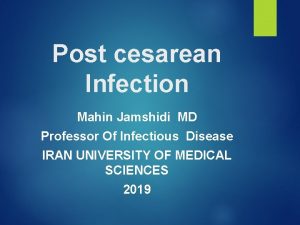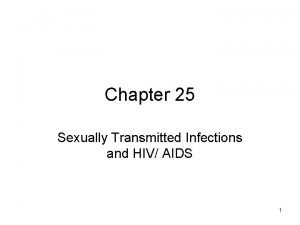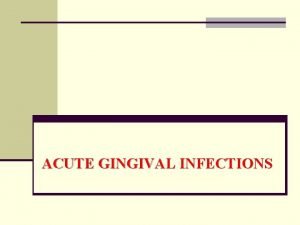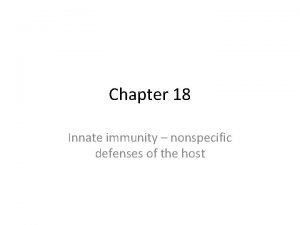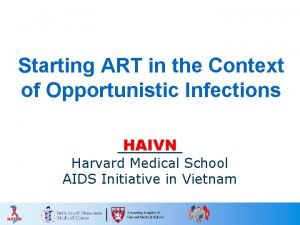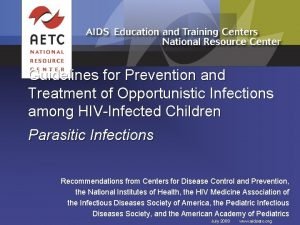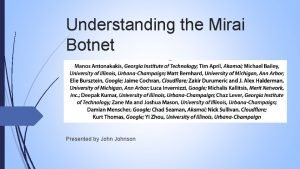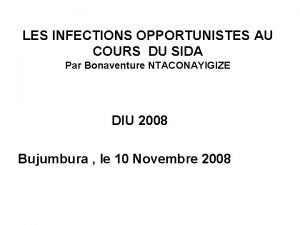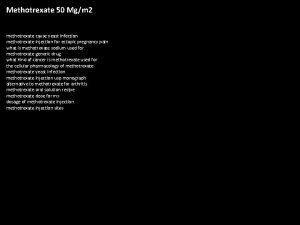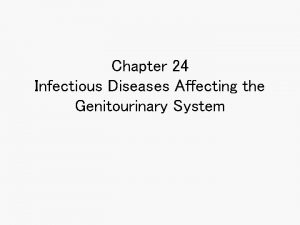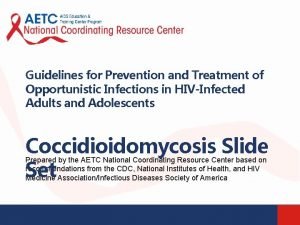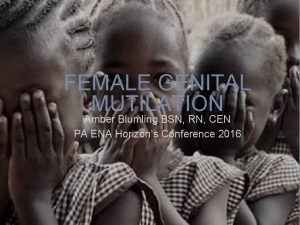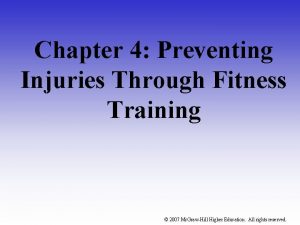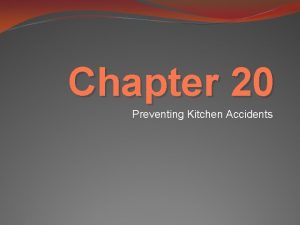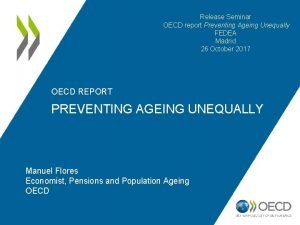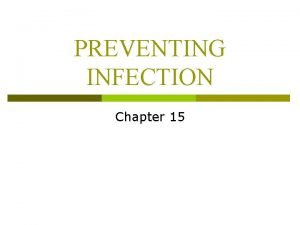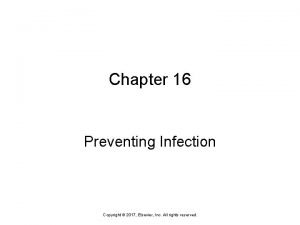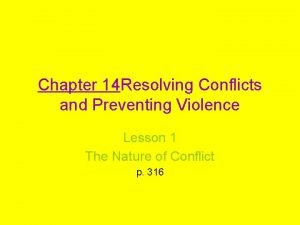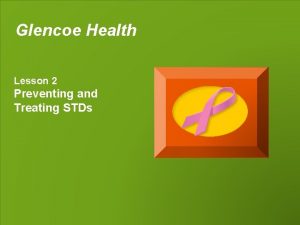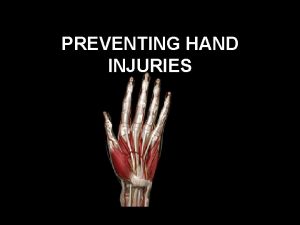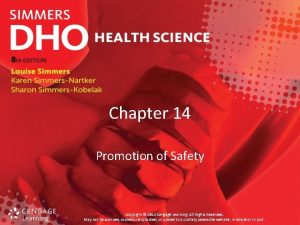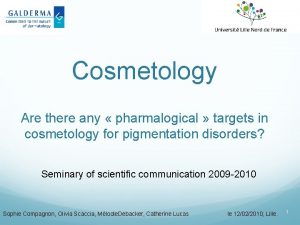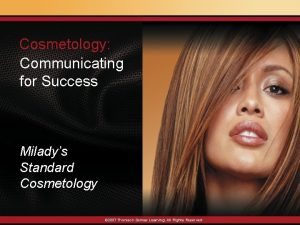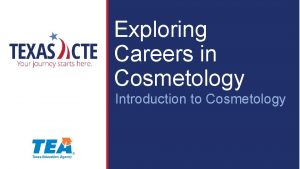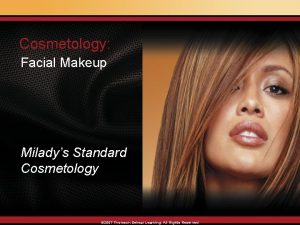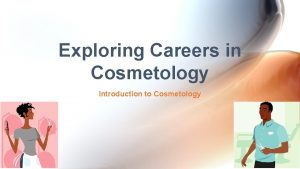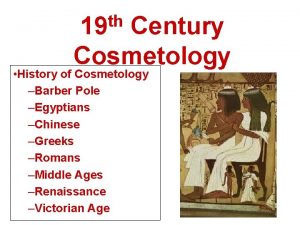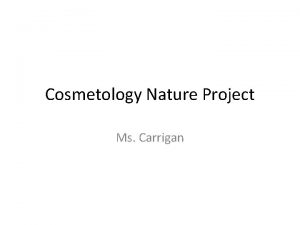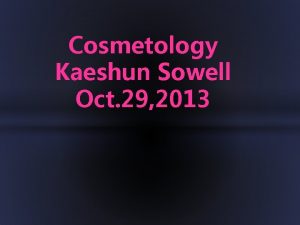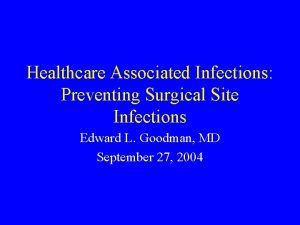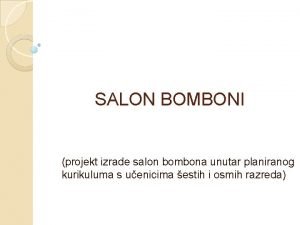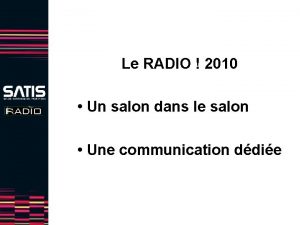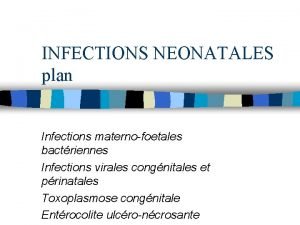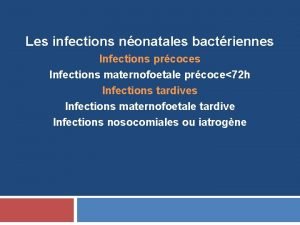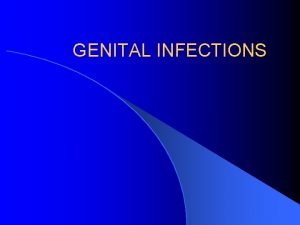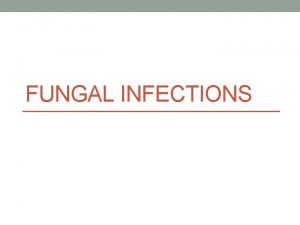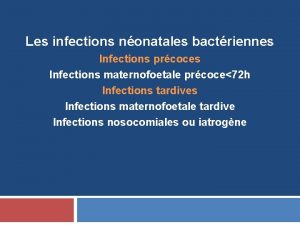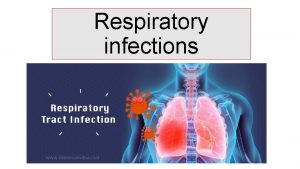Preventing Infections in the Salon Environment Cosmetology I


























- Slides: 26

Preventing Infections in the Salon Environment Cosmetology I, Cosmetology II

Copyright © Texas Education Agency, 2015. These Materials are copyrighted © and trademarked ™ as the property of the Texas Education Agency (TEA) and may not be reproduced without the express written permission of TEA, except under the following conditions: 1) Texas public school districts, charter schools, and Education Service Centers may reproduce and use copies of the Materials and Related Materials for the districts’ and schools’ educational use without obtaining permission from TEA. 2) Residents of the state of Texas may reproduce and use copies of the Materials and Related Materials for individual personal use only, without obtaining written permission of TEA. 3) Any portion reproduced must be reproduced in its entirety and remain unedited, unaltered and unchanged in any way. 4) No monetary charge can be made for the reproduced materials or any document containing them; however, a reasonable charge to cover only the cost of reproduction and distribution may be charged. Private entities or persons located in Texas that are not Texas public school districts, Texas Education Service Centers, or Texas charter schools or any entity, whether public or private, educational or non-educational, located outside the state of Texas MUST obtain written approval from TEA and will be required to enter into a license agreement that may involve the payment of a licensing fee or a royalty. For information contact: Office of Copyrights, Trademarks, License Agreements, and Royalties, Texas Education Agency, 1701 N. Congress Ave. , Austin, TX 78701 -1494; phone 512 -463 -7004; email: copyrights@tea. state. tx. us. Copyright © Texas Education Agency, 2015. All rights reserved. 2

What is an Infection? The invasion of body tissues by disease-causing pathogens Copyright © Texas Education Agency, 2015. All rights reserved. 3

Types and Classification s of Bacteria and Viruses Copyright © Texas Education Agency, 2015. All rights reserved. 4

Bacteria ▪ One celled microorganisms that have both plant and animal characteristics ▪ Microscopic in size ▪ Can exist almost anywhere Copyright © Texas Education Agency, 2015. All rights reserved. 5

Types of Bacteria Nonpathogenic Pathogenic ▪ Harmless bacteria ▪ Yogurt, cheese, medicines ▪ Harmful bacteria ▪ ▪ ▪ Cocci Staphylococci Streptococci Diplococci Bacilli Spirilla Copyright © Texas Education Agency, 2015. All rights reserved. 6

Viruses ▪ Live by penetrating and taking over cells ▪ Resistant to antibiotics ▪ Some vaccines are available ▪ Common virus in salons ▪ HPV-Human Papilloma Virus Copyright © Texas Education Agency, 2015. All rights reserved. 7

Hepatitis and AIDS Bloodborne Pathogens Copyright © Texas Education Agency, 2015. All rights reserved. 8

Bloodborne Pathogens ▪ Carried in the body by blood or body fluids ▪ Hepatitis A ▪ Hepatitis B ▪ Hepatitis C ▪ Human Immunodeficiency Virus (HIV) Copyright © Texas Education Agency, 2015. All rights reserved. 9

Fungi ▪ Microscopic plant parasites that include molds, mildews and yeasts ▪ Tinea barbae (barber’s itch) ▪ Tinea capitis ▪ Tinea pedis Copyright © Texas Education Agency, 2015. All rights reserved. 10

Vegetable and Animal Parasites Copyright © Texas Education Agency, 2015. All rights reserved. 11

Parasites ▪ Organisms that need a host to survive ▪ Can live on or inside of humans and animals ▪ Pediculosis capitis (head lice) ▪ Scabies (itch mite) ▪ Both contagious Copyright © Texas Education Agency, 2015. All rights reserved. 12

Universal Precautions Agencies and Responsibilities Copyright © Texas Education Agency, 2015. All rights reserved. 13

OSHA’s Bloodborne Pathogens Standards Treat all human blood and other potentially infectious material (OPIM) as if known to be infectious for bloodborne pathogens Copyright © Texas Education Agency, 2015. All rights reserved. 14

Federal Agencies ▪ Occupational Safety and Health Administration (OSHA) ▪ Occupational Safety and Health Act of 1970 ▪ Hazard Communication Standard (HCS) ▪ Material Safety Data Sheet (MSDS) ▪ Environmental Protection Agency (EPA) Copyright © Texas Education Agency, 2015. All rights reserved. 15

State Agency ▪ Texas Department of Licensing and Regulation (TDLR) ▪ TDLR's Mission The mission of the Texas Department of Licensing and Regulation is to honor the trust of all Texans, ensure public safety and consumer protection, and provide a fair and efficient regulatory environment. (image from website) http: //www. tdlr. texas. gov/ Copyright © Texas Education Agency, 2015. All rights reserved. 16

Responsibilities ▪ Never take shortcuts for cleaning and disinfecting ▪ Follow state and federal laws ▪ Keep your license current ▪ Check TDLR website frequently for updates to rules and regulations Copyright © Texas Education Agency, 2015. All rights reserved. 17

Cosmetology Services in a Safe Environment Decontamination Methods Copyright © Texas Education Agency, 2015. All rights reserved. 18

Decontamination Method #1 ▪ Two step process ▪ Cleaning tools 1. Wash with soap and warm water, then scrub with a clean and disinfected nail brush 2. Use an ultrasonic unit 3. Use a cleaning solvent ▪ Disinfect Copyright © Texas Education Agency, 2015. All rights reserved. 19

Decontamination Method #2 ▪ Two step process ▪ Cleaning tools ▪ Sterilizing ▪ autoclaves Copyright © Texas Education Agency, 2015. All rights reserved. 20

Disinfectants ▪ Appropriate for salon use: ▪ Quaternary Ammonium Compounds (quats) ▪ Phenolics ▪ Bleach Copyright © Texas Education Agency, 2015. All rights reserved. 21

Choosing a Disinfectant ▪ Be readily available ▪ EPA approved and environmentally friendly ▪ Inexpensive ▪ Must be efficacious ▪ Nontoxic and nonirritating ▪ No odor and noncorrosive ▪ Sustainable for at least a week or more Copyright © Texas Education Agency, 2015. All rights reserved. 22

Copyright © Texas Education Agency, 2015. All rights reserved. 23

Review 1. What is an infection? 2. How can infections be transferred? 3. Where can bacteria exist? 4. Name a harmless bacteria 5. What is a common viral infection in salons? 6. How are hepatitis and HIV carried in the body? 7. What are parasites? 8. What are universal precautions? 9. What are the steps for the decontamination method #1? 10. What should you do before and after working with a client? Copyright © Texas Education Agency, 2015. All rights reserved. 24

Copyright © Texas Education Agency, 2015. All rights reserved. 25

References and Resources Images: ▪ Microsoft Office Clip Art: Used with permission from Microsoft. (Slides 5, 7, 9, 12, 19, 20, 21) ▪ Shutterstock™ images. Photos obtained with subscription. (Slides 1, 3, 4, 8, 10, 11, 13, 15, 17, 18, 23, 25) Textbook: ▪ Frangie, C. M. (2012). Milady standard cosmetology. Clifton Park, NY: Cengage Learning. ▪ Backe, J. (2016). Milady standard cosmetology. Clifton Park, NY: Cengage Learning. ▪ Salon fundamentals. (2012). Evanston, IL: Pivot Point International. Websites: ▪ Centers for Disease Control and Prevention (CDC) Keeping hands clean is one of the best ways to prevent the spread of infection and illness. http: //www. cdc. gov/features/handwashing/ ▪ Occupational Safety and Health Administration (OSHA) Nail Salon Workers: Stay Healthy and Safe While Giving Manicures and Pedicures https: //www. osha. gov/pls/publication. html ▪ Texas Department of Licensing and Regulations The leader in public service, customer satisfaction, and innovation http: //www. tdlr. texas. gov/index. htm ▪ United States Environmental Protection Agency (EPA) Guidance from the EPA and the Centers for Disease Control and Prevention (CDC) http: //www. epa. gov/pesticides/factsheets/pedicure. htm Copyright © Texas Education Agency, 2015. All rights reserved. 26
 Storch infections
Storch infections Postpartum infections
Postpartum infections Chapter 25 sexually transmitted infections and hiv/aids
Chapter 25 sexually transmitted infections and hiv/aids Acute gingival infections
Acute gingival infections Innate immunity first line of defense
Innate immunity first line of defense Bone and joint infections
Bone and joint infections Opportunistic infections
Opportunistic infections Retroviruses and opportunistic infections
Retroviruses and opportunistic infections Johnson and johnson botnet infections
Johnson and johnson botnet infections Neurosiphyllis
Neurosiphyllis Methotrexate and yeast infections
Methotrexate and yeast infections Genital infections
Genital infections Storch infections
Storch infections Bacterial vaginosis
Bacterial vaginosis Opportunistic infections
Opportunistic infections Genital infections
Genital infections Chapter 4 preventing injuries through fitness
Chapter 4 preventing injuries through fitness Chapter 20 preventing kitchen accidents
Chapter 20 preventing kitchen accidents Preventing ageing unequally
Preventing ageing unequally Johannes volkelt empathy theory disadvantages
Johannes volkelt empathy theory disadvantages Chapter 15 preventing infection
Chapter 15 preventing infection Chapter 16 preventing infection
Chapter 16 preventing infection Chapter 9 resolving conflicts and preventing violence
Chapter 9 resolving conflicts and preventing violence Chapter 24 lesson 2 preventing and treating stds
Chapter 24 lesson 2 preventing and treating stds Preventing hand injuries
Preventing hand injuries Which is mainly responsible for preventing erosion
Which is mainly responsible for preventing erosion Chapter 14:1 using body mechanics
Chapter 14:1 using body mechanics

